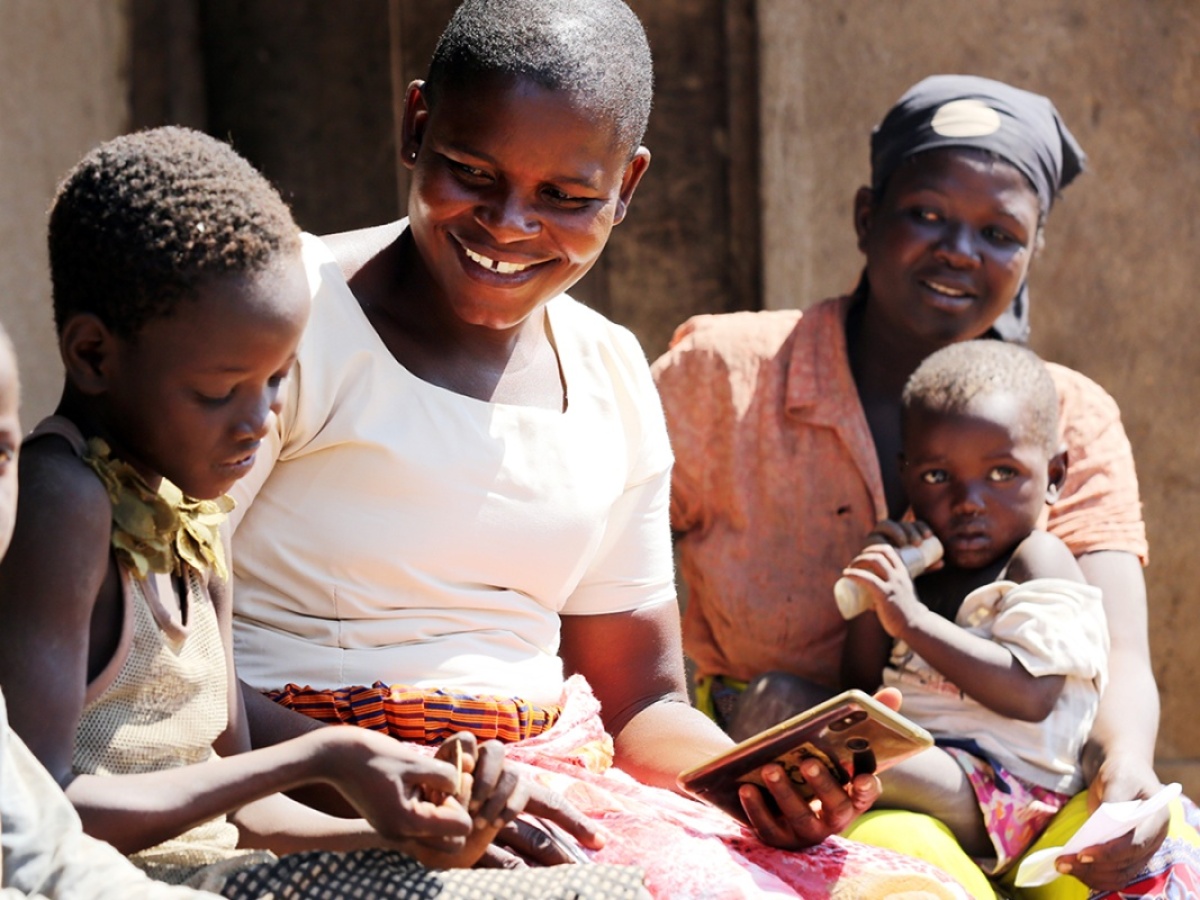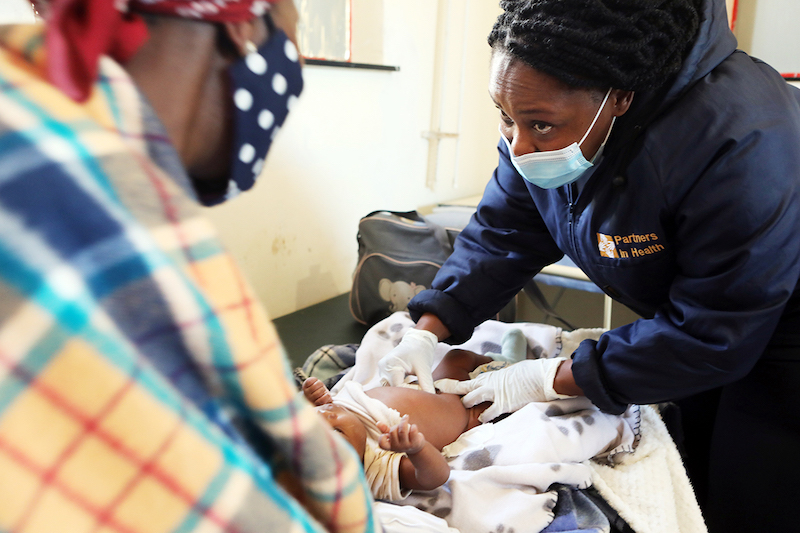How to Create Your Legacy with PIH
Experts discuss why and how to include PIH in your charitable estate plans
Posted on May 26, 2023

The word “legacy” is often applied to well-known individuals—politicians, movement leaders, scholars, and artists—who have left an indelible mark on history and touched the hearts and minds of millions.
In reality, every person has a legacy, an impact they leave on the people and causes they care about.
Tom White, the owner and president of construction company J.F. White Contracting Co., helped found PIH with his first significant gift and then systematically gave away his wealth by selling his company and his assets to continue supporting PIH. In his honor, PIH established Tom’s Circle, a legacy society of over 500 supporters dedicated to uplifting this work beyond their own lifetime.
CEO Dr. Sheila Davis is among those donors: “PIH has been an important part of my life for many years, and I know firsthand the transformational work happening at PIH sites globally. I can think of no better way to honor the work of our amazing staff around the world than to ensure that PIH is prominently featured in my legacy estate plans to continue this work for decades to come.”
We sat down with legacy gift planning specialists to discuss the concept of legacy, why more people are engaged in such planning in recent years, and how they have helped those interested make the right choices about their long-term giving. The following answers have been edited and condensed and include responses from Laura Sidla, senior director of gift planning; Paul Michael, development officer; and Kayla Hornback, loyal donor officer.
What is a legacy?
Everyone has a legacy. Your legacy is as unique as your fingerprint, a collection of your values, beliefs, life lessons, assets and belongings, loved ones, and causes you aspire to sustain and protect beyond your lifetime.
Are you confident in what your legacy will be?
Proactive legacy planning allows you to intentionally cultivate your legacy throughout your life, empowering you to live more fully and joyfully. Proactive legacy planning provides peace, knowing decisions about your values, assets, and loved ones are made, and wishes communicated.
At PIH, we honor individuals who include PIH in their plans as members of our legacy society, Tom’s Circle, named after PIH co-founder and first supporter, Tom White, and his radical generosity that continues to shape PIH’s work today.
Why is there an increase in legacy gift planning?
There is a movement to promote legacy planning to fight inertia (only 4 in 10 American adults have a will or living trust) and reclaim agency, especially among younger folks after the COVID-19 pandemic
For many PIH supporters, COVID-19 cemented our belief that high-quality health care is a universal human right and that we must fight injustice to provide care, first, to those who need it most. After a life-changing experience like the pandemic, reflecting intentionally on how to spend one’s limited time, energy, and resources feels meaningful to more people. Many desire to support PIH’s critical work beyond regular donations. Many want to give more but cannot today due to market uncertainties or future income needs.
Post-pandemic, there has been a dramatic increase in charitable estate planning as folks are inspired to reflect on how they can protect the people and causes they care for most beyond their lifetime and what plans they can formally and informally put into place to document their wishes.
Building on this momentum, PIH hopes to double the size of our legacy society, adding 500 supporters to Tom’s Circle over five years.
What are the most common ways individuals can include PIH in their legacy planning?
The most common legacy gifts are:
Gifts by will or trust (bequests): You can specify any amount or percentage of your will or trust or even list PIH as a contingent beneficiary, all while putting other provisions in place for other people and causes you care about. Learn more about bequests and FreeWill, which allows you to create a will for free in 20 minutes or less. People of all ages can make these gifts, and they can be revised at any time. We often see folks create their first will when they go through a major life event or experience the loss of a loved one. Early, proactive planning is important so you are not forced to make difficult decisions during particularly stressful periods of life.
Gifts by beneficiary designation: Naming PIH as a beneficiary of retirement assets, such as a 401(k) or an IRA, is a terrific way to make a tax-smart gift to PIH. Life insurance policies, donor-advised funds, and other bank/brokerage accounts can also be gifted. These gifts can also be made by anyone at any age for any amount and can be changed at any time. We often see people consider their first beneficiary designation when they open their first retirement account.
Gifts that provide income: With a charitable gift annuity, you gift $10,000 or more to PIH and receive income for life through your philanthropy. These gifts are for anyone age 60 or older through a simple contract. Calculate a charitable gift to see how this might work for you.
Why do some supporters choose this route to support PIH instead of one-time or annual gifts?
Many people include PIH in their legacy plans and also give annually.
In the United States, only about 5% of wealth is in cash. So, when people think of the impact of their philanthropy, gifts by check or credit card represent only a fraction of what is possible. We can accomplish much more when we think about our philanthropic impact from total assets. Plus, legacy gifts offer a unique opportunity for impact because many assets like real estate, life insurance, and retirement assets are not available to give until after your lifetime.
With the passing of PIH Co-founder Dr. Paul Farmer in 2022, many supporters have been inspired by his legacy to make a lifelong commitment to this movement. In PIH’s most recent strategic plan, Paul made a point to note that the transfer of money is the transfer of power. Many PIH supporters create a legacy with PIH to help fuel its social justice-oriented mission and rehabilitate, or repurpose, their privately controlled wealth to help restore communities disproportionately impacted by colonialism, racism, and climate change.

End-of-life conversations can be emotionally and mentally difficult for families and their loved ones. How is the team prepared for those conversations? What are some best practices?
PIH’s legacy gift planning team includes people with a wide range of experience and credentials related to legacy planning, charitable estate planning, resource mobilizing, and end-of-life planning, including bereavement counseling, financial planning, philanthropic advising, charitable estate planning fellowship, and death doula training. We understand the extensive web of logistics related to legacy planning, caregiving, and facilitating a legacy after a loved one passes. We approach the process with a balance of attention to detail and compassion.
Through our blended experiences, we acknowledge that legacy planning is often prompted within financial, estate, and active end-of-life planning. We encourage folks to proactively plan (formally through estate planning and informally through self-reflection, letters to loved ones, and conversations) more holistically and revisit more regularly, regardless of their financial circumstances.
We are guided by PIH’s principle of accompaniment – walking alongside each other and lending solidarity, a listening ear, a shoulder, a sounding board, a word of counsel or caution, and referring you to professional advisors when appropriate. We are honored to be welcomed into people’s lives in this meaningful way and go out of our way to provide a kind space to listen.
We encourage our supporters to connect with our team to start your proactive legacy planning. We hope you will share your legacy plans with PIH so we can thank you and ensure your wishes are well-documented and carried out as intended.
We also encourage sharing your PIH legacy plans with your family as much as you are comfortable. We will happily provide materials for you to give to your loved ones to help share the joy you find in your partnership with PIH.
When is the best time to consider these gift options? Can donors' choices change over time?
The best time to proactively plan your legacy is as soon as possible. As soon as you can identify a loved one in your life who will be impacted by your death or you accumulate resources you want to ensure will go to the people and causes you care about, you are ready to start legacy planning. However, many people are overwhelmed by the logistical and emotional complexity of legacy planning and don’t know where to start.
The good news is that no matter your financial circumstances, there are many different ways to get started and your legacy plan can, and likely will, change over time. Our team hopes to make it easy for PIH supporters to take the first –and often most important—step in planning by offering helpful resources informed by an initial conversation about your goals and wishes.

